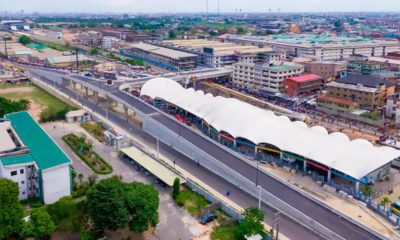Health
Anthrax Disease: Lagos Govt. begins free vaccination of animals
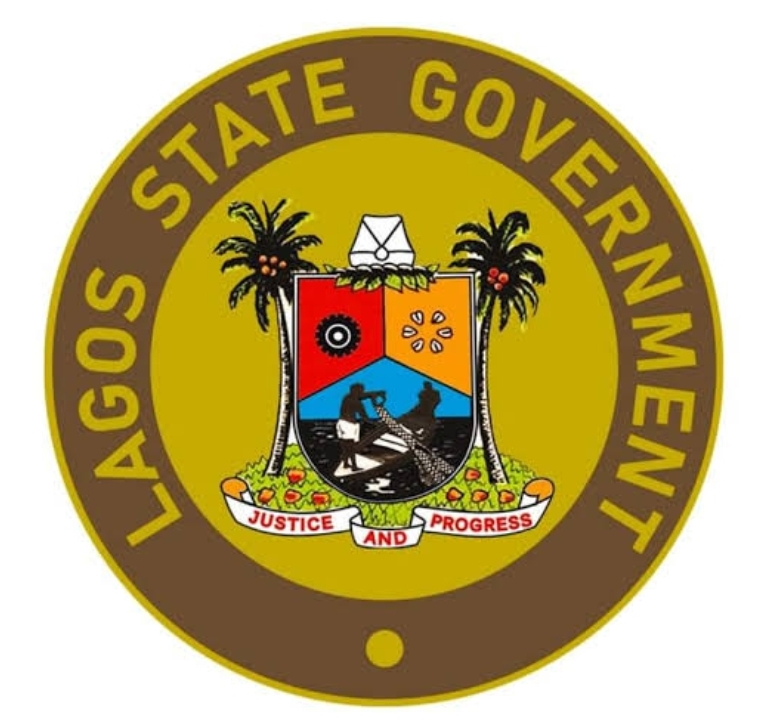
The Lagos State Government, through its Ministry of Agriculture has begun free vaccination of domesticated animals, in order to forestall the prevalence of Anthrax disease in the state.
Mrs Olatokunbo Emokpae, Permanent Secretary, Lagos State Ministry of Agriculture, said in a statement on Friday, that the ministry had also enhanced the surveillance of abattoirs and slaughter slabs in the state.
Anthrax, an infectious disease caused by Bacillus anthracis, affects domesticated animals such as cows, pigs, camels, sheep, goats, and wild animals.
Human beings who come in contact with infected animals can also get infected with the disease.
Emokpae said that the vaccination of domesticated animals, free of charge, would also be conducted alongside the inspection exercise.
She said that symptoms of the Anthrax disease in infected animals included sudden death, bleeding from natural orifices – mouth, ear, nose, anus and vulva, in female animals.
According to her, the blood discharge is usually dark and the dead animal will disintegrate quickly.
”Members of the public MUST NOT go near or touch animals suspected to have contacted the disease.
”They should immediately report cases of symptoms in animals to the Lagos State Ministry of Agriculture Director of Veterinary Services on 08023427594, 08180703010 or to the Veterinary Epidemiologist on 08023328244.
”The state government solicits the cooperation of animal owners as Veterinary Personnel vaccinate animals,” she said.
Health
Life expectancy: NMA advises Nigerians on eating right for healthy living
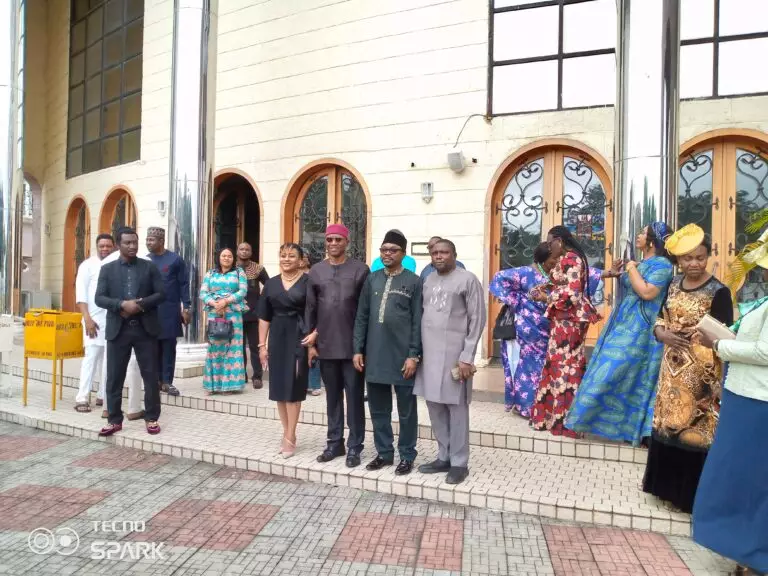
The Nigeria Medical Association, (NMA-FCT) elders forum has advised Nigerians, especially the youth, on the need to eat right for healthy living, saying such also controls life expectancy.
The Acting Chairman of the association’s elders forum, Dr Udofia Enefiok, gave the advice at a meeting tagged “A day out with the elders”.
The meeting was part of the activities lined up for the 2023 Annual General Meeting and Scientific Conference of the association.
Enefiok advised Nigerians, particularly the youth, not to eat anyhow because such food was free.
He added that everyone must relate properly with the kind of food eaten.
According to him, at every stage of life, there are specific food made for those stages and that “if you carry food that you have been eating when you are young and eat such quantity at age 60 or 70, you are doing yourself more harms than good.
“It is important to know that God created us and make provisions for a lot of things, a lot of food. God does not do things without reason and he kept those things for us to live with.
“It is expected that those foods are for purposes which we must get to know and then use them appropriately in order to stay healthy, that is the expectation of God”.
He said unfortunately a lot did not relate well with those foods, “we do what we want, we eat what we want because it is free, and God cannot constraint us, therefore we cannot live to achieve the old age we want”.
“It is not that we won’t die, God may want us to die at a particular time or from a natural disaster, or other unforseen circumstances. Some deaths are from the food we eat and it results to sicknesses.
“We have a duty to ensure we relate with our food properly, eat our food properly, to sustain our lives over crumbs that is just the message we are trying to pass to everybody.”
He said that if one ate quality food, the cells, as the basic foundations of life, would also be healthy and the organs of the body such as the heart, kidney and others would also be healthy.
Enefiok disclosed that the forum realised that eating right could avoid some diseases like hypertension, diabetes cardiac arrest, kidney failure and others.
The NMA-FCT Chairman, Dr Charles Ugwuanyi, stated that the meeting was basically organised for young Nigerians, especially young doctors to tap from the knowledge of the elders who passed through medical profession before them.
Represented by his vice, Dr Eno Ekop, he stated that elders always had words of wisdom for the young ones and that when the youth interacted with them, they got to learn a lot from the elders.
“If you start early to make food your medicine, it is not all about taking pills, lifestyle medicine is a major issue and that is basically what today’s gathering is all about,” he said.
Dr Ayogu Emeka, Chairman, Local Organizing Committee (LOC) of the AGM, also advised Nigerians to eat right to stay healthy and live long.
According to him, there will be a certain age in life when one will become old, and that if one did not take care of himself, some conditions may set in and it will require you to take drug more than food.
He said that the idea of the meeting was to advise everybody on how to eat healthy food, so that one could live long, due to eating the right quantity of food and avoid taking drugs.
The Chairman of the occasion, Prof. Olufemi Babalola, also called on Nigerians to eat right and avoid diseases associated with poor diet like Obesity, cancer, diabetes, heart attack, stroke and others.
Health
Universal health: CSO, others advocate more funding for health sector

A civil society organisation, Centre for Social Justices (CSJs) and other stakeholders in the health sector have reiterated their call for a robust funding of the sector.
The CSJ’s Lead Director, Mr Eze Onyekpere and the stakeholders, made the call in Abuja at the opening session of a two-day workshop on innovative and alternative funding of the health sector.
The workshop was organised by CSJs with the support of the United States Agency for International Development (USAID), under its palladium project – “Strengthening Civil Advocacy and Local Engagement (SCALE).
The stakeholders noted that a robust funding of the health sector would hasten the country’s 2030 target of Universal Health Coverage (UHC) for all Nigerians.
However, Onyekpere stated that Nigeria’s health indicators were poor and could not be compared to countries on the same level of development with it, noting that the country was very far off on the road to UHC.
According to him, part of the key challenges to this is the poor funding of the sector in terms of overall financial input, as well as inefficiency and waste in the sector.
He disclosed that the indices meant that the country was not having more health from available resources.
The lead director stated that the idea of the workshop was to canvass for more money for health and more health from the already available resources.
He said that the workshop was also to brainstorm on how the waste, inefficiency and corruption in the health sector could be cut down, looking at alternative sources of funding beyond the budget, to provide more forces for the sector.
“This is why we are discussing the issue of compulsory health insurance which if fully implemented, would generate more resources for the sector beyond what ever the Federal Government and state would budget.
“We are also looking at the prospect where Federal Ministry of Health had fully absolved its budget, it will implement the capital budget.
“We are also going to look at the idea of establishing health development bank which will be a development bank that will provide medium and long term credit at single digit interest rate, specifically focusing on the health sector.
“It will be used for upgrading of health infrastructure, health equipment and technologies that can make sure Nigeria’s hospitals compete with those Nigerian leaders go wherever they go on medical tourism.
Mrs Bolanle Ernest-Egbe, Head, Client Service, Health Maintenance Organisation (HMO), appreciated CSJs’ constant contribution on health sector, particularly for driving the advancement of health insurance.
She said that CSJs’ efforts in encouraging Nigerians for health insurance was well thought-out and had created awareness to millions of Nigerians to embrace the scheme.
“A lot of people are not aware of the health insurance scheme that is available to all even with the mandatory nature of the new Act that was enacted in 2002.
“With this advocacy programme by CSJs, we have been able to reach millions of people and create awareness that was necessary for them to buy-in into the health insurance scheme, it is a long task, but it is a good step.
“We sincerely appreciate the CSJs for this drive, for creating the platform for us; if this platform keeps on going this way, a lot of people will have better knowledge of health insurance industry.
“We should not be weary about the pace at which we are going; it may be small but it is a sure pace that will eventually pay at the end by having the UHC for Nigerians,” she stressed.
Ernest-Egbe, however, stated that there was still need for more advocacy and enlightenment on the health insurance, adding that enlightenment for beneficiaries of health insurance was not yet enough.
She said that a lot of beneficiaries on the scheme were not well informed about the benefits attached to the scheme or how to go about it to enforce their right.
According to her, the Federal Government needs to do more, and not just to pass the law on Health Insurance Act, and that they need to educate the public on the rights and benefits of the scheme.
She, however, called for collaboration between every government agencies and HMOs for frequent enlightenment and education to their staff, saying that this would surely bridge the gap between knowledge and benefits.
The workshop had in attendance representatives from the Pharmaceutical Manufacturing Group, Pharmaceutical Manufacturers Association of Nigeria, and faith-based organisations.
Others are representatives from the media, traditional civil society organisations, HMOs, ministry of health, and health officials from different states – Sokoto, Adamawa, Bauchi, Nasarawa, Imo, Rivers and Ekiti.
-

 Business5 days ago
Business5 days agoSeplat Energy celebrates a decade of Dual Listing with Bell Ringing Ceremony at Nigerian Stock Exchange
-

 News5 days ago
News5 days agoBDCs now buying dollar at ₦980 — ABCON President
-

 Metro5 days ago
Metro5 days agoOsun Poly Student, Olanrewaju Olatona killed by hit-and-run one-way driver
-
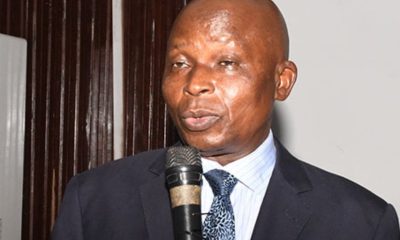
 Headline5 days ago
Headline5 days agoFagbemi warns against obstructing EFCC from performing its lawful duty
-
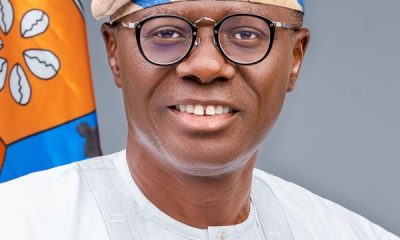
 News5 days ago
News5 days agoLASG’s maize palliative impactful, says poultry association chair
-

 News5 days ago
News5 days agoWoman killed while crossing road in Anambra



